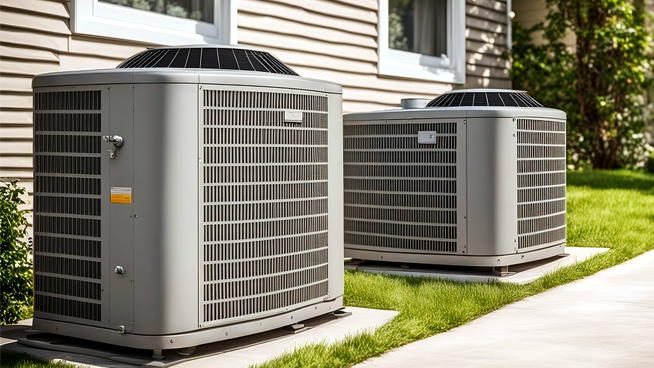
From The Detroit News | By Ken Calverley and Chuck Breidenstein
DETROIT, June 27, 2024 ~ Keep cool.
Sounds like a hipster admonition from the ’60s, but it is applicable today as we kick off summer with a streak of high temperatures.
Because of this, the Guys thought it appropriate to conduct a Physics 101 course on heat and cold.
Nearly 90% of homes in the US have an air conditioner, whether whole house or space specific, and cooling homes in the summer is actually more expensive and energy consuming than heating homes in the winter.
In the absence of heat, we have cold. Heat will move to cold whenever there is a temperature imbalance or differential and the greater that difference, the faster the transfer.
PODCAST:
June 29, 2024 ~ Chuck “The Inside Guy” Breidenstein and Ken “The Outside Guy” Calverly offer the knowledge and resources you need to make the home of your dreams a reality.
(CONTINUED)
Your air conditioner works on this very principle. Things “get” cold when heat leaves them to warm something cooler. Moving air picks up heat from everything in your home, including you, and takes it to a colder surface, the “A” coil on your furnace.
Inside the coil is a gas that absorbs that heat and takes it outside to your compressor where it is dispersed into the air.
Warmer air also carries more humidity, so that air feels “thicker and heavier”. When the home’s hot air is passed through the coil on your furnace and cooled, it also loses its humidity, so you have cooler and dryer air coming out of the duct vents.
Heat requires energy and most of the discomfort we experience from warmth in the summer comes from the energy of the sun.
The thermal insulation in your walls and attic is intended to resist heat transfer. The better the resistance, the higher the “R” rating, the better the insulation value.
In the summer, your house gains heat from the sun’s energy through the roof and attic, the sidewalls, windows and each time they are opened, the doors.
Proper roof and attic insulation and ventilation can limit some of this solar heat gain and improved sidewall insulation can make a huge difference.
These two items alone might save you 40% on your annual conditioning usage.
Keeping shades closed can minimize heat gain through the windows, and higher quality shades will perform better in this regard. Energy efficient windows also limit heat gain.
Keeping windows closed, even when nighttime temperatures have dropped a few degrees, can minimize the amount of humidity in the house and dryer air is more comfortable air.
Extended overhangs on houses can limit the heat gain from direct sun, as can strategic tree placement that decreases the amount of time the sun is shining directly on a wall of the home, particularly true of west facing walls.
Houses with attached garages should keep the garage doors closed whenever possible to limit heat gain through common exterior walls.
Keep in mind your air conditioner is more efficient at cooling and dehumidifying the air when it runs for longer stretches. Short cycling, when the unit only runs for brief periods, then shuts off, is very inefficient and not only raises the cost of cooling, but prematurely ages the equipment.
If you can keep your home reasonably comfortable through most of the day without the unit running, then operate it to cool the home in late afternoon several degrees, you will get better performance and more consistent comfort.
Make certain the exterior condenser unit has clearance around the entire perimeter, ideally at least 2 feet, and nothing in the space above it. Locating the unit such that it is shaded can also improve its performance as long as air can freely circulate around all sides.
Periodically spray the coils on the condenser with a hose, using only finger pressure, not any kind of nozzle on the hose end, to remove debris, including the dreaded dogwood seeds, from the unit.
Working with your home and its surrounds can not only increase comfort and efficiency, but it can also preserve and protect furnishings and floor coverings.
Keep cool and ask for help from the professionals you can find every day at InsideOutsideGuys.com.
**
For more advice, listen to “The Inside Outside Guys” every Saturday and Sunday on 760 WJR from 10 a.m. to noon or contact them at InsideOutsideGuys.com.
96.3 WDVD TOP STORIES:








